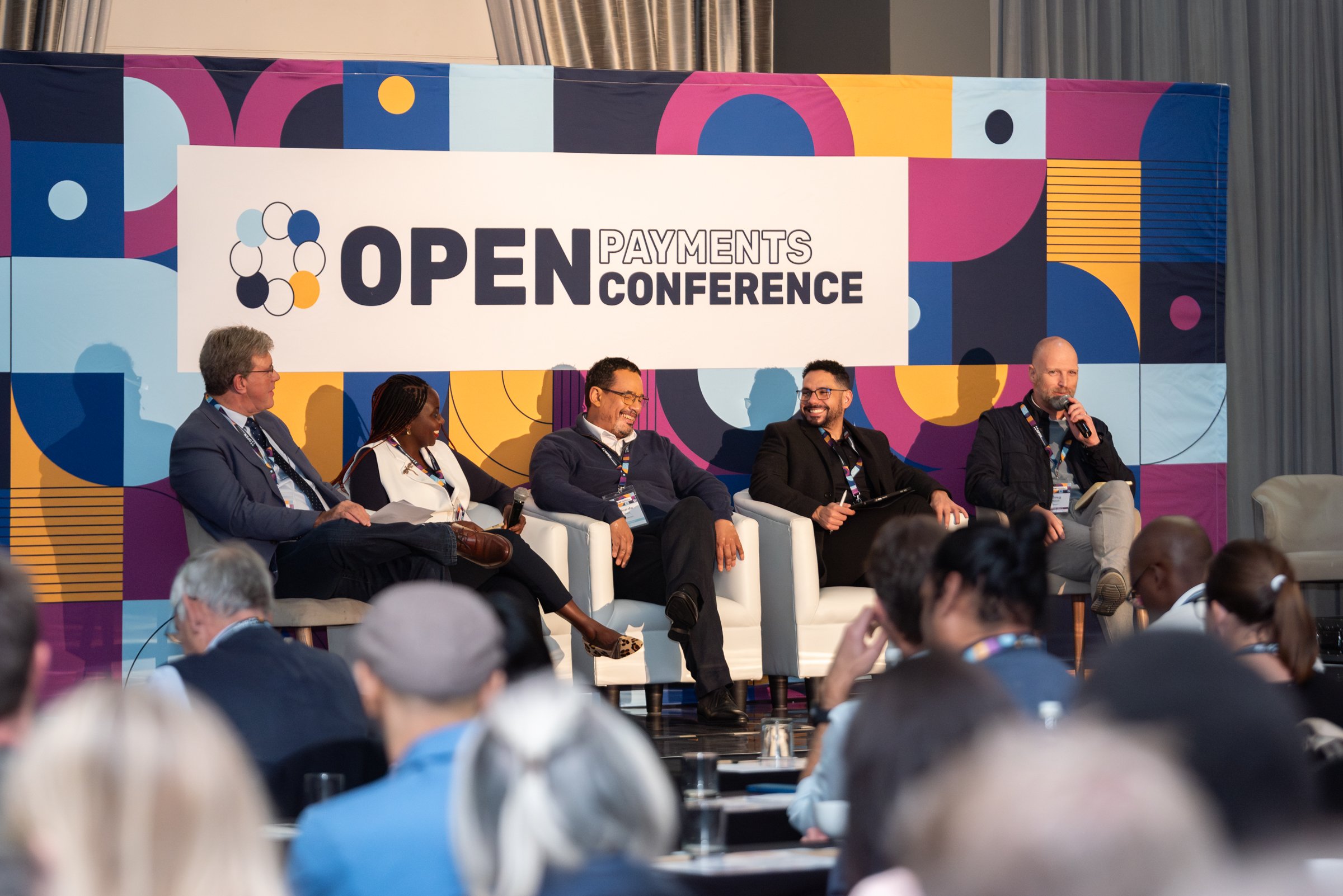
The second Open Payments Conference was an opportunity to discuss, learn, debate, and network with key payments industry roleplayers and leaders.
Keynote speakers and panel session participants tackled some of the biggest topics in South Africa’s payments landscape. Discussions included raising top-of-mind challenges alongside innovative approaches to solve for the needs of the country’s changing payments ecosystem.
A few of the important themes that are at the forefront of the industry's minds include:
1. All industry participants are eagerly awaiting regulation changes
Currently, as per the NPS Act, non-banks are excluded from directly accessing the settlement system and require partnership with a bank sponsor to settle transactions. As it stands, the National Payment System caters largely to banks with limited involvement from non-bank participants. Changes to the Act, in the form of Recommendation 13, propose greater involvement of non-banks in order to foster innovation and competition in the ecosystem.
It is hoped that, by early next year, the amendments to the NPS Act will be passed and non-banks will have clarity on the new role they can play in the payments landscape. A strong sentiment from the conference discussions is that non-banks are tired of being on the periphery of the payments system and are eager to get more involved.
2. Collaboration is more important than ever
It is an exciting time in the industry as a convergence of stakeholders is being experienced. The landscape is blurring as fintechs are expanding their offerings and innovations; retailers are broadening their services beyond basic value-added services into the banking space; and telcos are playing in the digital wallet and payments arena.
This means that engagement between these varying partners is vital, coupled with the need for an understanding of how different partners can best benefit the end user. Banks may not always be the best positioned to gauge how consumers are transacting at the till or to understand the use cases for converting from cash to digital - and this changes how new solutions can be approached.
The industry is poised to offer more innovative solutions than ever before, and significant strides towards financial inclusion can be made through effective collaboration and interoperability.
3. It is not innovation if you are not solving for customer needs
User experience has been a focus point of payment stakeholders and service providers for a while now. Many conference presenters stressed the idea that the industry needs to focus on solving for customer needs and pain points directly. It is not as simple as offering a customer the best experience or the most frictionless service. Both banks and non-banks need to dive into understanding how customers prioritise their day-to-day payment needs, and the way in which they want to access these services.
Digital payment options are available, but something is stopping South African consumers from moving away from cash. This needs to be explored in order to make a significant improvement in terms of financial inclusion and the quality of services offered to citizens. The launch of PayShap is worth exploring - although adoption is climbing, is the service really enticing enough with its current fee structure and limited participants? The industry is watching with interest as more banks join and pricing becomes a competitive differentiator.
The need for ubiquity of services was touched on by a number of speakers and it is important to note. Payment innovations need to be accessible to all - whether the consumer prefers to shop at a large retailer or a small merchant. This is the only way to ensure that the service is truly meeting the needs of consumers and solving their digital payment accessibility limitations.
4. There is a need for future-thinking design
Both banks and non-banks should be looking at the next 10 years when planning new innovations or solutions. The user base is changing and so are their needs. The next generation has different ways of transacting, sharing personal information, and making purchases. This extends to new levels of trust and changing behaviour, and this needs to be designed for.
The technology that is being built and put into place today will need to be able to handle future volumes and scale and needs to be robust enough to handle next-generation demands. The focus must be on ensuring the integration layers are stable enough for this future growth.
Overall, there is a need to look at innovations from an end-to-end user experience - keeping in mind that at some stage the service is going to end up at a till or in the hands of a small merchant, or being implemented through a third party or partner in a new use case.
5. New technology brings new opportunity
PayShap is a prime example of this - especially as we await the implementation of new use cases arising from the Rapid Payments Programme. There are exciting opportunities to positively impact the ease with which consumers transact, making payments safer and more convenient for all users.
The rise of AI is another opportunity for the payments ecosystem as it offers the potential to help with saving money as efficiencies can be improved; increases productivity or profitability as better processes can be implemented; and plays a role in fraud with behaviour analysis and prediction.
The recent launch of an open banking solution shows how value can be added to consumers through the use of new technology - where screen scraping was a considerable risk to users, a solution has been implemented to ensure that digital payments remain safe and convenient to use. This is just one use case for the potential of open banking services.
In summary, stakeholder collaboration combined with a consumer-centric approach, future-thinking, and new industry participants will result in new solutions, new technology, and new payment opportunities for the South African ecosystem.
We will be writing about these, and other, themes over the next few weeks, follow us on LinkedIn to read the articles as they are published. Are these the topics that stood out for you? We would love to hear from you and continue the discussion, so pop us an email.

Helen Whelan
Helen Whelan is a Content Writer at Electrum. With a BSc (Hons) from Rhodes University, she enjoys the combination of creativity and technical topics that content creation at Electrum involves. Cats and coffee fuel her day.
Electrum Newsletter
Quarterly insights and news to help you keep up with the latest changes in the payments landscape







